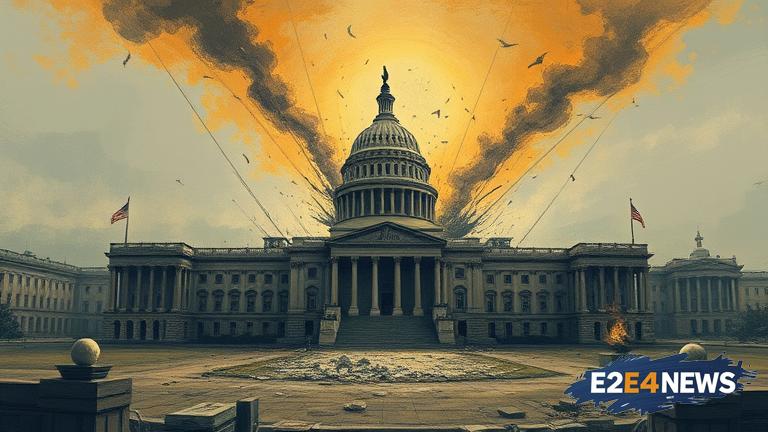The administrative state, a cornerstone of modern governance, is undergoing a systematic unraveling. This phenomenon is characterized by a decline in the effectiveness and legitimacy of government institutions, leading to a crisis of confidence in the ability of the state to deliver public goods and services. The roots of this crisis are complex and multifaceted, involving a combination of factors such as bureaucratic inefficiency, corruption, and political polarization. As a result, the administrative state is facing a legitimacy crisis, with many citizens questioning its ability to effectively address pressing social and economic issues. The consequences of this unraveling are far-reaching, with potential implications for the stability and security of societies around the world. The administrative state plays a critical role in providing public goods and services, regulating economic activity, and protecting the rights of citizens. However, its ability to perform these functions is being eroded by a range of factors, including budget cuts, staffing shortages, and political interference. The impact of this decline is being felt across a range of areas, from healthcare and education to infrastructure and national security. Furthermore, the unraveling of the administrative state is also having a profound impact on the economy, with many businesses and investors expressing concerns about the stability and predictability of the regulatory environment. The decline of the administrative state is also having a significant impact on social cohesion, with many citizens feeling disillusioned and disconnected from the political process. In addition, the rise of populist and nationalist movements is also contributing to the erosion of the administrative state, as many of these movements seek to undermine the authority and legitimacy of government institutions. The implications of this trend are profound, with potential consequences for the stability and security of societies around the world. The unraveling of the administrative state is a complex and multifaceted phenomenon, requiring a comprehensive and nuanced response from policymakers and citizens alike. Ultimately, the future of the administrative state will depend on the ability of governments and citizens to work together to address the underlying causes of this crisis and to build a more effective, accountable, and responsive system of governance. The need for reform is urgent, as the consequences of inaction will be severe and far-reaching. The administrative state is not just a collection of institutions and bureaucracies, but a vital component of modern democracy, providing the framework for the delivery of public goods and services and the protection of citizens’ rights. As such, its decline poses a significant threat to the health and stability of democratic societies, and requires a concerted effort to address the underlying causes of this crisis and to build a more effective and accountable system of governance.
